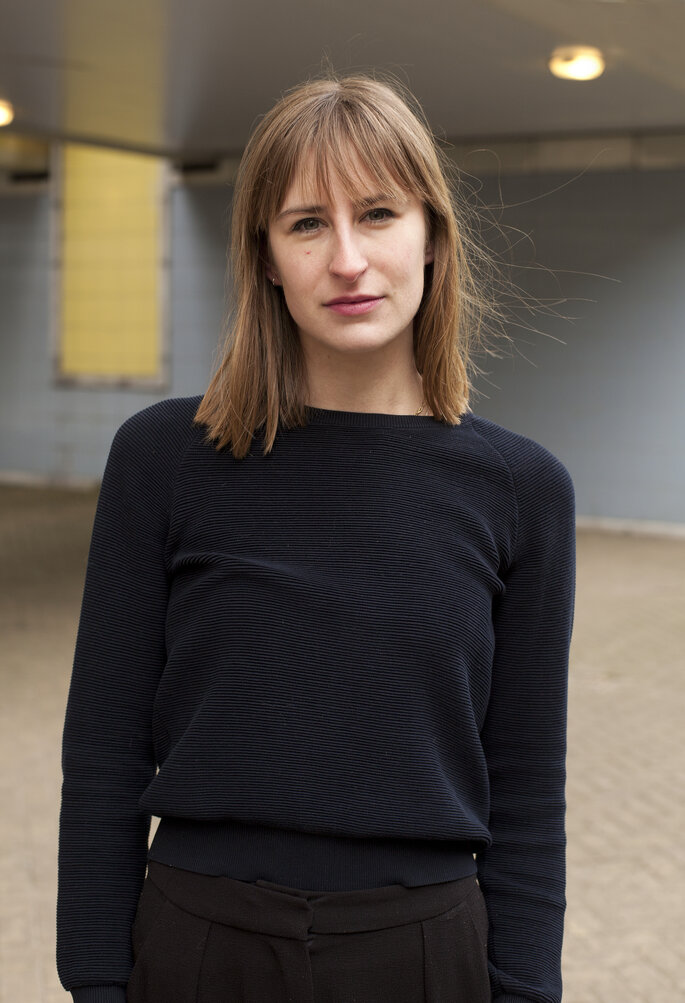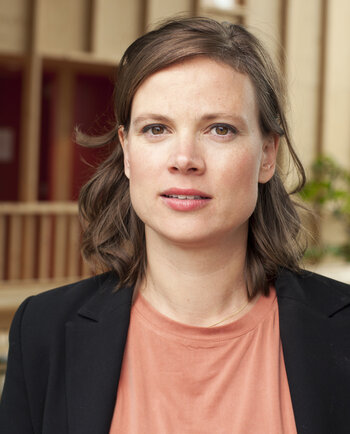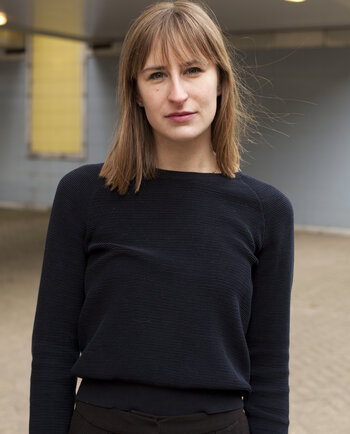
Academic innovation for societal impact
Simone van de Wetering Adviseur en onderzoeker sociale innovatie Nora van der Linden Directeur en senior adviseur sociale innovatieThe academic world is in motion. Huge efforts are being made to connect academia with society and to increase the impact of scientific research on society. There has been a lot of debate on valorisation of research results and on making academic publications publicly accessible.
We still see that research results are often not (immediately) relevant for those connected to the researched issue, such as citizens in a difficult neighbourhood, unemployed college dropouts or patients in elderly care. In addition, it regularly takes too much time for research results to become publicly available, or the results are not speaking to non-academics. In other words, the knowledge developed by academics is not from or for the common public, neither in the research process nor as the results. The construction of knowledge is now mainly an academic practice, a process from which civil society is excluded. This leads to missing out on valuable practical and experience-based knowledge, and on opportunities to make society smarter by participating.
Therefore we argue for the democratisation of knowledge, making the construction of knowledge a more inclusive process with various roles for different actors. We see an important role for universities in new collaborations and new ways of co-creating knowledge that are needed for (academic) research results to better contribute to societal well-being and innovation. In this thinking piece we make an inventory of the Dutch landscape on academic and research renewal: What do we see happening so far? We conclude by exploring our role in this field and invite you to join us in increasing the impact of research for society.
Four key developments
When we say the academic world is in motion, what change do we observe? Below, we identify four promising developments within and outside academia:
1. Co-creating knowledge: academics, students, civil society
The Netherlands knows a comprehensive field of applied sciences that goes further than publishing research results in popular science magazines and using ‘respondents’ only to gather predefined answers to large surveys. There is increasing interest in involving citizens in defining the workfield of the social sciences (what issues should be the topic of research?) and working together on these co-defined issues. Academic knowledge is no longer seen as to be simply handed over to society, but as a co-production between universities and societal partners.Academic knowledge is no longer seen as to be simply handed over to society, but as a co-production between universities and societal partners.
For instance, in 2015 the Knowledge Coalition sent out an invitation to the Dutch public to submit their questions about science. These questions, submitted by the general public, academic institutions, the business community and civil society organisations, resulted in The Dutch National Research Agenda as an investment agenda advocating for integrated science, technology and innovation policy.

Co-creating knowledge: not only academics, but also students and civil society
Also in the Urban Field Labs of the Amsterdam University of Applied Sciences (HvA), in which professors, researchers, lecturers and students conduct practice-based research, the research topics are defined by the city district and the local community. These local research projects within Amsterdam neighbourhoods exist of area-based analysis and the application of research results. The Field Labs are both a new way of science education and an innovative research practice.
The University of Tilburg started with ‘Proeftuinen’ (test beds). With Tranzo, this university and care and welfare organisations work in Academic Collaborative Centres on long-term collaborations to co-create, develop and exchange knowledge.
Similarly, the Centre for Innovation of Leiden University ‘explores technology from a people’s perspective by starting initiatives relevant to society and by developing learning experiences and innovation tools’. To do so they connect scientists with students, their partners, the market and society at large.
Finally, there are more and more online ‘citizen science’ initiatives like ‘Iedereen Wetenschapper’ (everyone a scientist) where citizens can help researchers by counting seabirds or measuring the quality of the air, and ‘MOOR’: Massive Open Online Research, a tool currently being developed at the University of Amsterdam for the collaborative interpretation of qualitative data.
2. Expanding the scope of data/‘knowledge’
With the involvement of new actors in the co-creation process of knowledge, we see new debates emerging about the construction of data and what is being perceived as ‘valuable knowledge’. Often scientists translate ‘soft data’ like experiences, ideas and emotions into measurable indicators and classifications to enable generalisations and to make comparisons across different groups possible. But it is more and more argued that some relevant data cannot and should not be made ‘measurable’.It is more and more argued that some relevant data cannot and should not be made ‘measurable’. Instead – or better: in addition – we need stories that can uncover the nuances and exceptions that make up complex social reality. Of course, there is an academic tradition that does just that: ethnographic research. However, there is still a lot of controversy whether this kind of research, in which the use of stories and the experiences and subjectivity of the researcher are central, is ‘valid science’.
Sociologist Christien Brinkgreve argues that researchers need to look beyond numbers and statistics++Beyond numbers and statisticsTogether with journalist Sanne Bloemink and Eric Koenen she wrote the book ‘Weten vraagt meer dan meten’ (Knowing asks for more than measuring) about the ‘paradigm of numbers’ that is not only encountered in science but also in the fields of education and health care. and pay more attention to power and interests, to nuances, exceptions and emotions. Only by measuring, standardising, generalising and reducing human experiences and stories to ‘hard data’ she claims, we cannot understand complex social reality. Science historian and sociologist Trudy Dehue elaborately explains her fight against the trend of ‘standardising everything’ in this podcast (in Dutch). She argues that only by taking into account different voices and stories we can solve the wicked social problems of our time. Stories that deviate from the norm lead to more variation, which is needed for different outcomes and innovation.
An initiative that practices what the above-mentioned researchers preach is kunnenwepraten.nl (canwetalk.nl – in Dutch) by research journalist Joris Luyendijk. As an experiment he interviewed citizens who voted on the right wing party PVV, and based on these interviews he started (online) conversations to learn from their personal experiences about something he could not grasp.
The Instituut voor Publieke Waarden (Institute for Public Values) combines social theories with practical knowledge++Combining social theories with practical knowledgeIn this podcast (in Dutch) co-founder of IPW Albert Jan Kruijter combines social theories with practical knowledge to reshape public policy.
they gain from talking to citizens, professionals and civil servants to change the bureaucratic system surrounding multi-problem families. These initiatives by journalists and social innovators provide interesting insights in what kinds of knowledge are produced when also non-academics are involved.
3. Open and accessible science
How can research results become accessible to non-academics? Although former State Secretary for Education, Culture and Science Sander Dekker stated in 2016 that ‘we will realise open access in 2020’, the majority of academic research stays largely inaccessible for non-academics++Open acces initiativesRead about innovative, but formally illegal, open acces initiatives in the article ‘The Research Pirates of the Dark Web’ on the Atlantic.. Most research articles remain locked in research journals’ databases that can only be accessed by the academic community. Perhaps even more important, the language in which research is communicated works exclusionary for non-academics: because they do not comprehend the knowledge that is developed by academics, they cannot use it in their daily life and work, and cannot participate in discussions about this knowledge and the ways in which it should serve society.
But efforts are being made to make research more accessible by spreading academic writings beyond paywalls and by translating academic knowledge to common language. In doing so, academic knowledge is made more comprehensible and thereby usable also for those outside academia.Academic knowledge is made more comprehensible and thereby usable also for those outside academia. Think about citizens who broaden their knowledge and thereby their perspectives for action, civil servants incorporating scientific research into their policy-making or professionals applying new insights from academic research to their daily working practice.
The Young European Research Universities Network (YERUN), in which Maastricht University is represented, argues++Position paperThey do so in their position paper ‘A Research and Innovation Agenda for a global Europe: Priorities and Opportunities for the 9th Framework Programme‘. Read the paper, including other innovative ideas for the academic system here. that the current academic system does ‘not necessarily foster a culture of openness, collaboration and sharing among scientists and innovators’. They call for transforming this system starting with a radical change in the way in which the scientific excellence of researchers and their teams is mainly assessed: on the basis of publications in top scientific journals. New quality indicators and evaluation criteria have to be developed that reflect and reward the contribution to a culture of Open Science.
Many efforts are being made to bring scientific knowledge closer to non-academics via other media. For instance, the Royal Netherlands Academy of Science organised ‘Kennis op straat’ (knowledge on the street) with public lectures in e.g. social centers, scouting clubs and other social organisations. With these lectures they aim to share specific research topics, and secondly the investigative approach of scientists with a new audience.
Another initiative to make academic knowledge more publicly available is De Universiteit van Nederland (The University of the Netherlands), an online platform that makes lectures online available, with a new theme every week and a daily online lecture. The popular Dutch tv-show De Wereld Draait Door invites scientists to give lectures in a tv-show setting with DWDD University.
4. Impact
The work of universities has traditionally consisted of performing research and educating students. But more and more, universities embrace a third task of generating social impact. The work of universities has traditionally consisted of performing research and educating students. But more and more, universities embrace a third task of generating social impact. It is increasingly++Now or neverIn this article (in Dutch) on the online popular science magazine ‘Sociale Vraagstukken’ (social issues) two professors argue that ‘It is now or never for universities to become more relevant’. argued that research results, in the form of new ideas or solutions to problems, should have impact when they are implemented in society and contribute to societal renewal and well-being. However, academics are still mainly rewarded for their publications in academic (non-accessible) journals rather than for the contributions they make to society.
But also here we identify a shift. Tilburg University recently launched their Impact Programme in which they emphasise how the university aims to move from understanding society towards advancing society. Working more multidisciplinary within the academy is a crucial part of this programme to generate impact.
Also, YERUN addresses this in its position paper, by arguing we need new ways to measure impact. They call for a more comprehensive notion of impact to include the (hard to pre-define) impact of high-risk and long-term research and the possibility for researchers to design their own impact criteria.
The Impact Centre Erasmus at the Erasmus University Rotterdam is another example of a university using its scientific knowledge and experience with a diverse group of organisations to measure and boost social impact. Also outside academia various (social innovation) organisations develop and use tools to measure the impact of innovation processes and projects. For example Tit4Tat who designed a practical tool to identify ‘Critical Turning Points++Critical Turning PointsIn a 90-minutes session at the 2017 Transit Learn for Change Conference in Rotterdam, this tool was tested. Read about it here.
’ in social innovations.
Towards experimenting with new ways of collaborating
Scanning the Dutch landscape we encounter a shared urgency to do things differently. To make knowledge more diverse and to develop the construction of knowledge into a more inclusive process. But good intentions are not enough. What is needed is to connect these initiatives that are collectively driven by the same sense of urgency and start a movement of academic innovators. We want to create a learning community that explores new opportunities and shares knowledge, experiences and new approaches. We believe there is a permanent role for universities to grow their impact on society and solve social problems in multidisciplinary teams.We believe there is a permanent role for universities to grow their impact on society and solve social problems in multidisciplinary teams. To use all the knowledge, skills and capacities of academics, but not isolated from other valuable knowledge and experience that exists in society.
Kennisland wants to support existing initiatives and initiate new interventions. To do so, we are looking for scientists, students, civil servants, citizens and professionals to collaborate with us on these topics:
- How can we increase the impact of (scientific) research on society?
- What collaborations, processes and ways of doing research can contribute to that?
- Who are our partners – from universities, universities of applied sciences, to NGOs and citizen initiatives – and what are their roles to play?
Do you have innovative work practices or ideas for new collaborations? Contact us!

